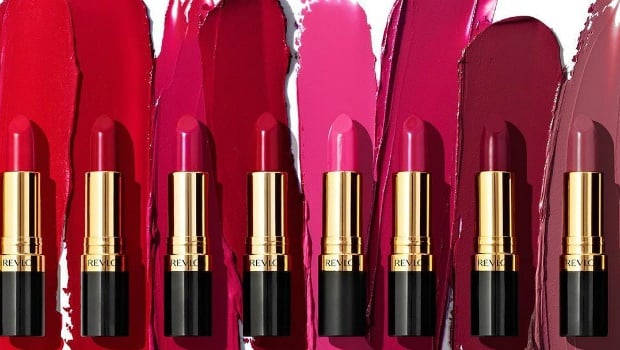
In May last year international mega beauty brand Revlon appointed its first-ever woman CEO and president, Debra Perelman, in their 86-year history.
Forty-four-year old Debra got this position just months after taking on the position of Chief Operating Officer at Revlon, where her billionaire father Ronald Perelman is a majority owner.
Inspired by our new President & CEO Debra Perelman! https://t.co/Od9WmxBqvR pic.twitter.com/RZEJHgaFsC
— Revlon (@revlon) May 23, 2018
According to CNN Business, Debra has been a member of the Revlon board since 2015. "She has also worked for Revlon as executive vice president and head of new business development for its holding company, MacAndrews & Forbes," CNN added.
READ MORE: Air France picks its first ever woman CEO
Indeed, 2018 was a year of many firsts for women around the world, as major corporates such as Air France, Standard Bank's wealth division and Revlon put women in top leadership positions, while Ethiopia elected their first woman president Sahle-Work Zewde in October, and Saudi Arabian women finally got into the driver's seat after a decades long ban on female drivers.
But despite these triumphs, women are grossly underrepresented in the beauty industry's top leadership - a multi-billion dollar industry made primarily for women - yet, we are the consumers that feed this industry on a daily basis.
Case in point, two of the largest beauty companies in the world, Estée Lauder Companies and L'Oréal, are run by men.
READ MORE: AT A GLANCE: We still have only one female CEO in the top 40 companies in SA
Revlon may not be a Fortune 500 company, but even within that Fortune 500 stable, as of March 2018, only 24 of the CEOs of companies who made the list are women.
When Debra Perelman stepped into her role as Revlon's CEO, she became only one of only a handful of cosmetic brand chief executives who are not men. And within this small group, a number of them are celebrities who created their own beauty brands.
Currently, these are the other trailblazers running the beauty game as CEOs, directors and founders:
Connie Mashaba
Connie is the director of hair care brand Black Like Me, which she and husband Herman Mashaba launched in 1985. Reputable entrepreneurship publications have hailed Black Like Me a model of solid African entrepreneurship in its 30 years of existence and consistent innovation.
Her strategy for success, according to Entrepreneur Magazine, is based on three principles:
"Give people what they want; do not take customer service for granted; and do not be static – when you stagnate, you die."
READ MORE: How one woman turned a hobby into a skincare range South African women can't get enough of
Ego Iwegbu with partners, Azania Mosaka & Linda Jangulo
Ego is the CEO and founder of Miss Salon London and MSLONDON Cosmetics - a chain of boutique nail bars in Johannesburg and Pretoria - which she runs with TV and radio personality Azania and Linda, who has a background in business.
It's evident from Miss Salon's overall online presence that one of the keys to this brand's success is their active involvement and hands-on approach, as Ego says on their website;
"Miss Salon London is home away from home for me; I love being in the salons. They're bright, fresh, fun and super cool. I thoroughly enjoy meeting the women these salons attract. I treat myself to being a client at least once a month just to check that the experience is still GREAT!"
Kylie Jenner
Forbes named this Kardashian-Jenner sister the youngest ever self-made billionaire thanks to Kylie Cosmetics, which was launched in 2015. And it all started with some lip kits.
Kylie Cosmetics is now worth $800 million (over R11 billion) all thanks to Kylie's social media prowess, which garners enough support for her products to sell out almost immediately.
Rihanna
This one needs no formal introduction. When Rihanna launched Fenty Beauty Cosmetics in 2017, she turned the beauty industry on its head, proving that inclusivity is mandatory rather than optional.
Fenty Beauty was even named as one of Time Magazine's Best Inventions of 2017. Besides her unparalleled star power, the viral success of Rihanna's cosmetics brand is owed to the introduction of 40 shades of foundation (a first for any beauty brand) and the unique lip paints and highlighters, managing to rake in $100 million in sales in its first 40 days on sale.
"I never could have anticipated the emotional connection that women are having with the products and the brand as a whole,” Rihanna reportedly told Time.
READ MORE: Rihanna has been ranked number seven on the Forbes list of highest paid women in music
It's clear from the above beauty bigwigs, that profit and success are inevitable when women are in top leadership in an industry created for our enjoyment and benefit. Besides business acumen, instinctive knowledge of what your consumer wants is a key player of this ever-booming industry.
It's therefore strange how so many beauty brands are still predominantly led by men.
Sign up to W24's newsletters so you don't miss out on any of our hot stories and giveaways.



 Publications
Publications
 Partners
Partners










